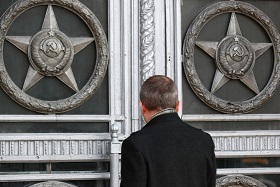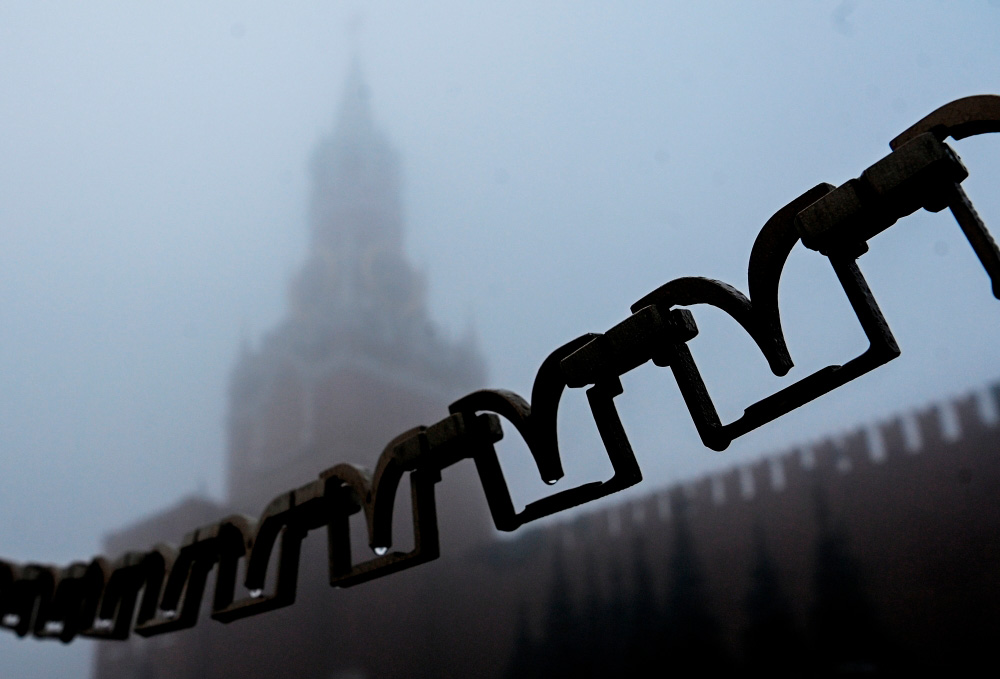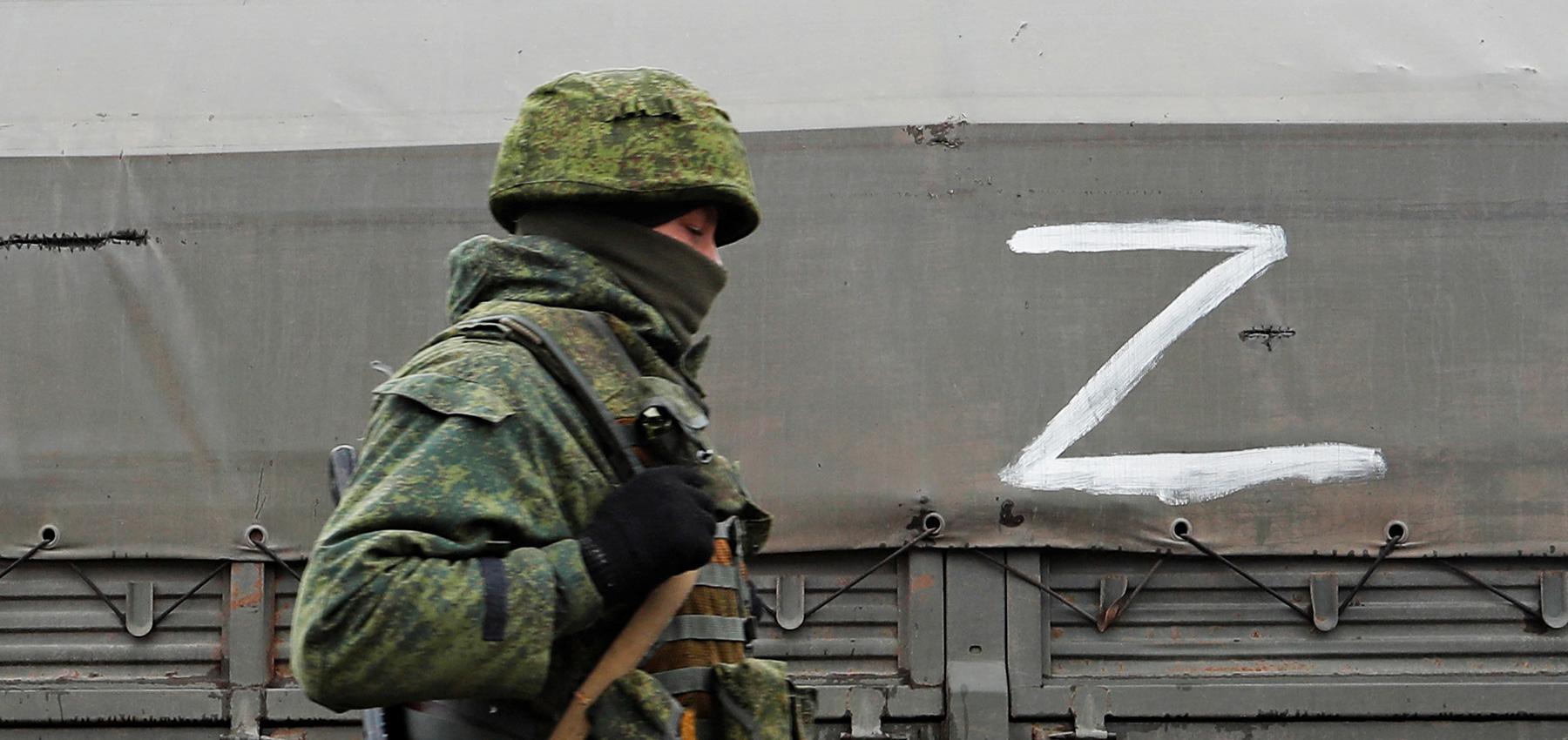The main objective of this study is to debunk some common misconceptions against Russia and its contentious military intervention in Ukraine. If we look at the coverage and reporting of mainstream media outlets of the West, we can see that the majority of myths were created to suit them. The majority of misunderstandings have been built on the foundations of outright lies and fantasy. The US and European Union created misleading narratives about Russian military intervention in Ukraine aiming to destabilising Russia and countering Russian influence in Asia and Europe. This research exhibit that continuing to believe in the character and implementation of Western policies toward Russia and Ukraine will be detrimental to India and other Asian countries too. Before drawing any conclusions or passing any judgment against Russia in the ongoing Ukraine crisis, the US posture toward Russia and Ukraine must be critically examined. Every move taken by the US since NATO's inception in Eastern Europe demonstrates how the US and other Western cultures have expanded their influence in order to trap the political leadership of the Commonwealth of Independent States (CIS) states. The entire experiment is meant to destabilise Russia. It is vital to evaluate Russia's reason for using force against Ukraine as a foundation for the study. Also, what choices did Russia have before launching a military operation? Before bringing up the issues of war crimes, human rights, and international law, it is desirable to comprehend Russia's security concerns and strategic threats.
Before we get into how Russia’s military operation against Ukraine was legal and how international law supported it, it is desirable to have a look at the current debate about the Ukraine with some objectivity and conscious thoughts. It is critical to recognize that the U.S. and Russia have fundamentally different policies and viewpoints on security, strategic, and economic issues. Russia’s key concern over Ukraine is to ensure and protect its strategic interests, as Ukraine’s decision to join the EU and NATO could pose a threat to Russia. Following the inception of military action in Ukraine, Russia has been isolated globally, but it would be wrong to ignore the reality that around 40 countries still defend Russia and refuse to believe the U.S. propaganda. As fighting rages across Ukraine, two versions of reality that underlie the conflict stare across a deep divide—neither conceding any truth to the other. The truth is that the concerns of Russia’s security, military and strategic interests are uncompromising, while the United States has to shun its ambitious preparations for a NATO expansion at the border of Russia. The false and baseless narrative has been created by Western media outlets—one that Russia is a rogue nation that violated international law, with Vladimir Putin having “personality cult” issues, being committed to reinstating the “The Great Russian Empire”. The unfounded reportage portraying the Russian president is the embodiment of an expansionist state is nothing bust pack of pure lies. This paper seeks to examine the claims made by Western leaders about Russia as well as assess the ongoing military action in Ukraine under the premises of international law.
Is it war or limited military action?
It is important to note that the term “invasion” refers to a full-scale, one-sided military assault of the highest intensity. The Western media have repeatedly used the term “invasion” to refer to Russia’s action in Ukraine, which is, in fact, a limited military intervention aiming to demilitarize the country, ensuring safety and security of Russian-speaking residents in the Donetsk and Lugansk Republics of Eastern Ukraine, who have been subjected to unprecedented human rights violations over years—rather than an act of war. Furthermore, the critical component of taking armed action against Ukraine was the de-Nazification of Ukraine’s civil society, military and administrative institutions as well as large-scale violations of human rights—particularly, the suppression of basic rights of those living in Donetsk and Lugansk. The international media purposefully ignores Volodymyr Zelenskyy administration’s merciless armed assault against the Russian-speaking populace in Eastern Ukraine. Moreover, there have been several reports of racial discrimination against students of Asian nations, particularly Indian and Pakistani students, as well as numerous reports of racial discrimination that have gone unnoticed by the tainted Western media.
A considerable section of strategic and defense analysts, both in India and abroad, believe that it was not a war but limited military action, initiated to achieve some justifiable and strategic security targets. In his address to the nation, the Russian President has repeatedly mentioned that there will be no compromise on the safety and security of Russia and its nationals. Besides, President Putin agreed to hold talks with Ukraine, and his only condition is that Ukraine must abandon the NATO affiliation dreams. It is doubtful and extremely unlikely that Russia would launch a full-scale military operation in Ukraine to form a dummy government in Kiev. Allegations proliferated by the Western media that it is a full-scale war against Ukraine has many holes in them, as Moscow has not used its air force with full intensity.
The EU lawmakers are also divided on Russia’s military action in Ukraine, while prominent leaders have raised the issue of unwarranted NATO advancement in Eastern Europe and the CIS countries at the behest of the United States. If we look at the military response of Ukraine, it suggests that armed action in the cities will entail unwarranted bloodshed on the Ukrainian streets. Russia’s primary concern is to prevent city-based violence by Ukrainian nationals in all major cities. Violent resistance by the Ukrainian army has had a limited effect because Russia’s military action is not about eliminating Ukraine—rather, it is about ensuring a neutral status of Ukraine. Kiev must shun its grand ambition of joining NATO, as this would severely hit Russia’s security concerns.
In this analysis, it can safely be stated that the Western propaganda against Russia has no basis, as it is not the war but a limited military action aiming to achieve some genuine security targets. The propaganda against Russia that the Kremlin is considering for “the nuclear option” is to be dismissed as another Russophobic campaign sponsored by U.S. mouthpieces and Nazi fanatics in Europe.
The Doctrine of Pre-emptive Use of Force
Article 2(4) of the UN Charter prohibits the use of armed force by a member state, whereas Article 51 allows the right of self-defense if an armed attack occurs. Article 51 is somewhat of an exception to Article 2 (4) only when there is a threat to peace, security, and the act of aggression. The general understanding of Article 2(4) is that armed intervention is strictly prohibited under the UN Charter. Its interpretation, however, has been given a new look during the Iraq war. It needs to be understood who sought to promote the doctrine of pre-emptive use of force against Iraq—the Bush administration justified their military action against Iraq under the pretext that Iraq reportedly had WMD (weapons of mass destruction). Later on, Washington had to admit that the U.S. wrongly attacked Iraq and that it was a sheer failure of wrong intelligence inputs. The mistake of the Bush administration has brought about the destruction of an entire civilization of Iraq, converting a beautiful Middle Eastern nation into a graveyard. The U.S. sole justification was that it acted under self-defense, and the right of Article 2(4) presumptively constitutes armed aggression crystallized decades late, which effectively means that a grave violation of Article 2(4) today triggers Article 51 because it constitutes an act of armed aggression.
Those attacking Russia for violation of Article 2(4) should understand the circumstances that led the Kremlin to take such an extreme step. The accusation that Russia has breached the core principles of international law is unfounded and disingenuous. It should be remembered that Article 2(4) of the UN Charter authorizes member states to use force when there is an imminent threat to the state’s territory, sovereignty, or peace. During the Iraq war, none other than the United States put forward the theory of pre-emptive use of force. Following the sad events of 9/11 in 2001, the Bush administration proposed an innovative idea about how to safeguard America’s national interests and security, something that came to be known as pre-emptive use of force under UN Charter Article 2(4).
The critical element of this doctrine is the use of military action in advance of the first use of force by the enemy. The doctrine of pre-emptive use of force has a contentious character and is weak should it be examined through the lenses of international law. It still remains a factual reality that the U.S. has taken the claim to use pre-emptive force to an even more controversial level. When the force was used by the U.S. in the Gulf, Libya, and Afghanistan, it was justified. Then, how can this doctrine be illegal in Ukraine?
While the classical interpretation of international law requires that there should be an impending threat of attack before pre-emption could be permissible, the U.S. argues in its 2002 National Security Strategy (NSS) that the United States “must adapt the concept of an imminent threat to the capabilities and objectives of today’s adversaries.” It contends that “The greater the threat, the greater is the risk of inaction—and the more compelling the case for taking anticipatory action to defend ourselves, even if uncertainty remains as to the time and place of the enemy’s attack.”
If we apply the same doctrine to the Ukraine crisis, it seems quite justified—since NATO expansion in Eastern Europe and the CIS nations is a legitimate concern for Russia and a violation of the Minsk Agreements of 2014 and 2015. The global and European media have conveniently ignored how Ukraine violated the OSCE principles. The issue of de-escalation, amnesty to prisoners of war and restoring dialogue with Donetsk and Lugansk have repeatedly been ignored by Ukraine. The developing proximity with the EU and NATO expansion is a serious threat to Russia’s sovereignty, integrity, and security and how Putin can remain silent on these crucial issues.
Existential issue for Russia?
The core issue that remained unheard in the whole debate is what signifies the military action in Ukraine. How do we understand Russia’s rationale for the military operation in Ukraine? Let us begin with what the invasion is just about to ensure Russia’s security and sovereignty. Putin’s move has been dubbed a “war of choice” by the U.S. administration—in fact, Russia’s military retaliation has been forced on it by the U.S. It is a question of both existence and political metaphysics for Russia.
It should be remembered that the consequence of this military involvement will have a greater impact on Russia. Putin believes that Russia has two choices: either develop and protect Russia as an independent, sovereign, and strong nation capable of living with itself and according to its own vision of itself, or exist in a world as shaped solely by the United States and its Western allies. This so-called war is nothing more than an existentialist military intervention, and it is through this military action that Russia’s struggle for its identity and soul as an independent sovereign state should be understood.
The U.S. larger strategic and military design must stop immediately to ensure peace and stability in Eurasia and Eastern Europe. If the West really believes in international peace and harmony, the U.S. and its allied forces must then refrain from their ambitious NATO expansion plan towards Russia. The tension between Russia and the U.S. have been deliberately manufactured, with an aim to send NATO reinforcements to the CIS countries, especially Ukraine. The U.S. has denied giving considerable word to Russia towards its demand that NATO will remain neutral and shun its strategy of enlargement towards Eurasia.
The treaty with the U.S. and Agreement with NATO has become null and void when the U.S. approached (almost trapped) Zelenskyy to join NATO despite a strong displeasure of Russia. Nothing wrong if Russia looks for some solid assurance from the U.S. that NATO will halt its eastward expansion, rule out the option of granting membership to Ukraine and other CIS nations and immediately withdraw U.S. military deployments from Eastern Europe.
The military situation around Russia is vital. With intense armed preparation encircling Russia underway and the West willing for Russia not to react, it is simply ridiculous. It is wrong to suggest that Russia's demand is unfair and illegal as Putin just want to convey the message to the western societies that NATO shouldn’t breach the territorial influence of Moscow as most of these nations are under the direct influence of Moscow sphere or largely known as little St. Petersburg hence NATO must withdraw forces from Moscow influence. These Baltic cities also represent grand Russian society, culture and language, and traditions.
It must be noted that Russia is not asking NATO and the U.S. to seek consent from Moscow to deploy military consignment or troops but to refrain from any military activities from Eurasia, the CIS, and to immediate halt NATO’s activities near Russian territories. Putin is right to describe this situation in the terms of the 1962 Cuban Missile Crisis, referring to how First Secretary Khrushchev denounced the missile program from Havana just to avoid any military conflicts with the Kennedy administration. The Cuban Missile Crisis of 1962 was the most direct and dangerous military conflict between Washington and Moscow during the Cold War, and it was resolved due to the sound political maturity of Khrushchev. If we compare the current crisis in Ukraine, it has been fueled by none other than the United States. What would America’s reaction be if Putin developed strategic proximity with Mexico, Venezuela or Canada, deploying nukes in direction of Washington? How can you sleep in peace when your bed is full of sharp-edged knives? There are fundamental differences and perceptions to understand the whole Ukraine issue, while Western media must acknowledge the legitimate security concern of Moscow before pot-shot.
Why Nazification of Ukraine is not an issue
A majority of people across the globe are confused about Putin justification of military action in Ukraine. In his television address, Putin mentioned two basic reasons of military action in Ukraine. First, demilitarisation and a neutral status of Ukraine. Second, Ukraine must stop massive bloodshed in Eastern Ukraine, where Russian-speaking population have been subjected to genocide and tremendous human rights violations. Even if we acknowledge the fact that Zelenskyy is of Jewish ancestry and that his ancestors took part in combat operations against Hitler during World War 2, it does not mean that the Kiev administration under Zelenskyy is not committed to the radical Nazi ideology.
The reports of how the Ukrainian army, police, immigration workers, and municipal officials using racial profiling against 20,000 or so Indian medical students are deeply frightening and upsetting. It may be noted that denazification of Ukraine and the prevention of massive bloodshed in Eastern Ukraine are permissible under international law of responsibility to protect, and the same had been exercised by different countries in the past.
Russia cannot turn a blind eye to the Ukrainian army’s vast genocide and violations of human rights in Donetsk and Lugansk in Eastern Ukraine. The latest legislation on language policy in Ukraine has also made the lives of the Russian-speaking nationals more vulnerable. The violation of linguistic freedom, denial of some basic human rights by the Ukrainian President is a matter of grave concern that led to limited military action in Ukraine.
Where India stands in the whole crisis?
India and Russia have a close relationship, and India’s UN posture is mature and consistent with its national interests. India is well aware that Russia accounts for some 80 per cent of its military backing, supplies, and equipment. If India chooses to alienate Russia, its military power, particularly its air-force combat and naval defense capabilities, will be jeopardized severely. India can’t abandon its decade long ally in this manufactured crisis knitted by United States. President Vladimir Putin also refers to India as a time-tested ally, as Moscow engages closely with New Delhi in the military and technological arena like no other country, and the two countries have recently inked a fresh 10-year defense accord. While the West and EU lambasted Russia's aggression, New Delhi's commitment to its long-term partner remained unshakable. India, along with China and the United Arab Emirates, refrained from voting on a resolution condemning Russia's incursion last week as a temporary UN Security Council member. India's action is well-received and well thoughtful conceding the significance of its national interests.
India also recalls Russia using its veto power to help India at the United Nations on nearly six occasions. During the 1971 crisis, when the US was preparing to invade India, Russia's policy toward the newly established Bangladesh proved to be of great aid to India. When India recently repealed Article 370 in Kashmir, Russia endorsed India's position in a number of international forums. In the United Nations, India has adopted a neutral posture, demanding that both countries observe international law. Furthermore, territorial integrity and sovereignty must be protected in line with the UN Charter and other international laws and conventions. The violence and hostility must stop, and all parties must return to the table to work out any unresolved concerns.







